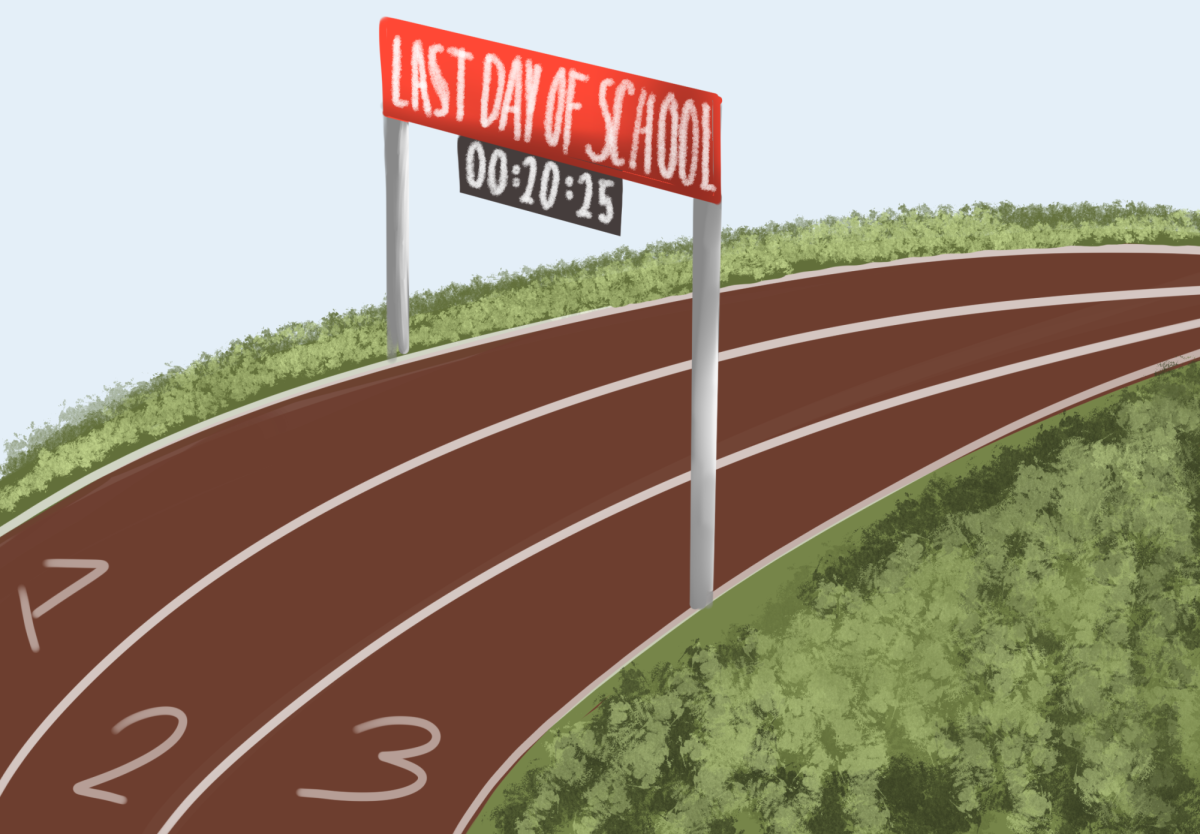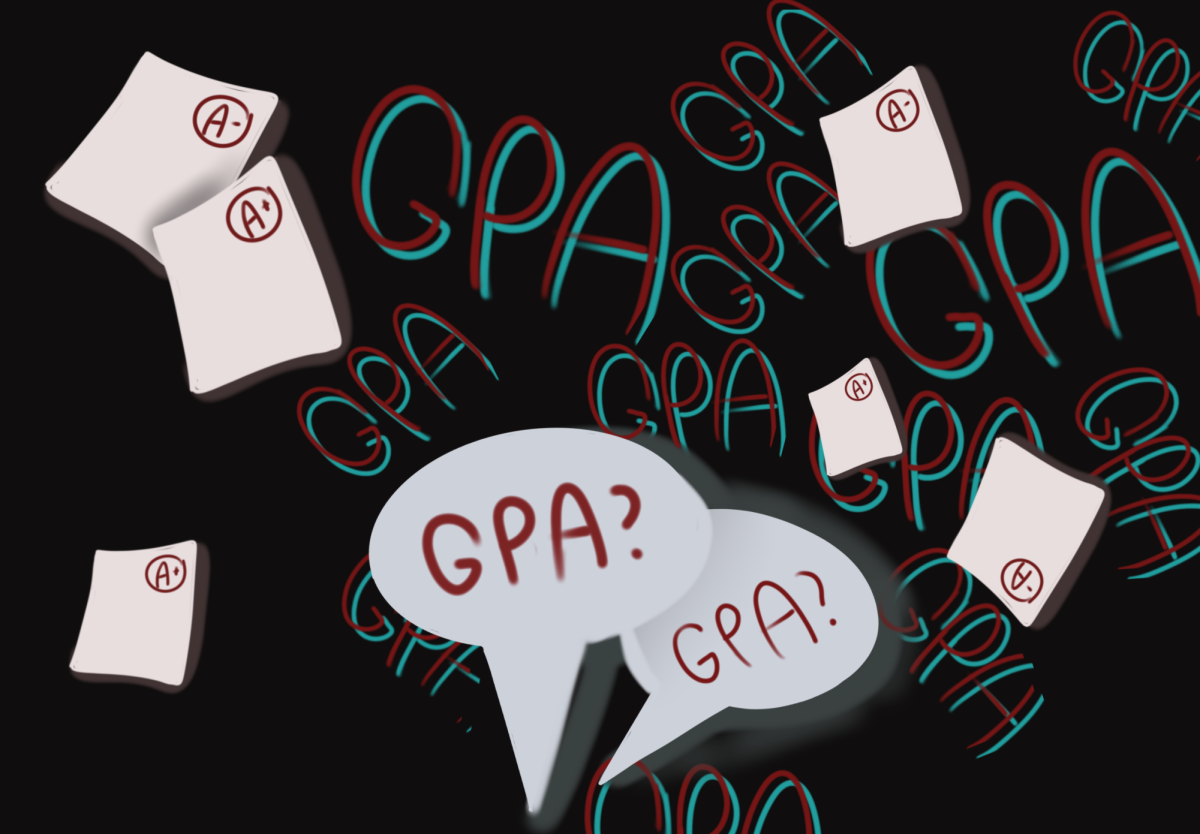May has arrived, the turf has opened for tanning, and eating outside has become more appealing as students soak up the newfound warm weather, which we’ve missed since early September. However, school suddenly feels like a race we didn’t know we had entered. One minute we’re returning from spring break, and the next we’re knee-deep in tests and final projects. The days seem to grow longer each day. Many of us find ourselves stuck inside, sprinting toward a finish line that feels less like a celebration and more like Sisyphus’s stone.
Thus, it’s worth asking: what do we really gain from all this end-of-year academic pressure? After months of barely surviving a harrowing winter term, shouldn’t the final stretch feel more victorious than rushed? Right now, it feels like both students and teachers are struggling to make it through, counting the days instead of making them count.
A major reason for this feeling is that the hardest units and the heaviest assignments are often saved for the end of the year. We wouldn’t expect a runner to sprint their fastest at the end of a marathon, so why should we expect a tired student to have the most energy in the middle of May? Our minds are tired, our routines are slipping as the seconds tick by, and emotions are at an all-time high.
So what’s the solution? How about slowing down?
Not necessarily stopping, just shifting. Instead of cramming the most difficult units or large tests in the very last month, teachers could focus more on creative, collaborative, and project-based work. This approach not only gives students the chance to apply what they’ve learned, but it also encourages deeper thinking and engagement. A physics final might be stressful, but a group project building a Rube Goldberg machine could be fun and just as educational.
According to the National Education Association, project-based learning can help with motivation and retention of knowledge. But more importantly, it honors the emotional and social side of education, especially during moments of transition.
This isn’t about doing less or avoiding work. It’s about doing what matters more in a healthy way.
There’s a real emotional cost to powering through the burnout of May. Students are managing academic stress alongside looming changes, all with one foot out the door and inching towards summer. Giving space to breathe could give students more comfort at the end of the year and eliminate the final, tired push of academia, providing the students with true relief when school finishes.
Slowing down doesn’t mean slacking off. It means shifting from a mindset of performance to one of purpose. It means recognizing that endings deserve intention, not just exhaustion and grade chasing.
School should slow down before the year ends, not in rigor, but in application. Not in expectations but in approach. May can still be meaningful. In fact, it might become the most meaningful part of the year if we let it.






